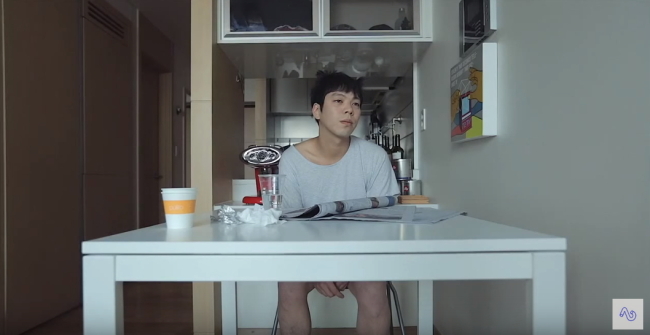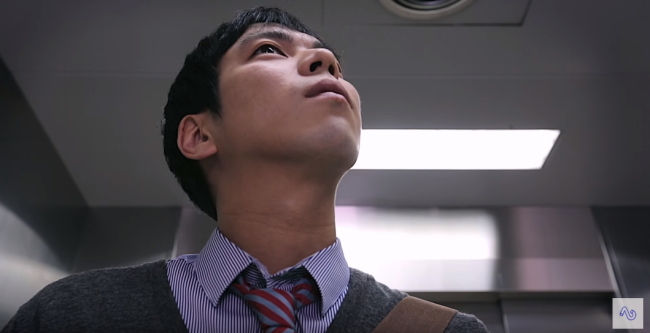Within two minutes, viewers get a peek into the life of character Oh Gu-sil, an office worker who goes on a string of blind dates, repeating the same conversations.
This is the setup of web drama “Oh Gu-sil,” created by emerging digital content company 72 Seconds.
Entertainment is increasingly foraying outside the boundaries of television and film. Such short online clips fulfill viewers’ need for instant and intermittent entertainment, according to Jang Joon-yeon, head of content business at MakeUS, an online content creator.
“Today, we don’t take out a portion of our day to consume entertainment,” said Jang at a seminar in Seoul’s Google Campus last Monday. “Viewers want to be entertained in brief in-between moments, like when they’re waiting for the elevator.”
MakeUs is the brain behind digital content brand Dingo, which makes clips on lifestyle, beauty, fashion, culture, food, music and more.
Dingo Travel offers short, under-5-minute clips of trendy and affordable travel spots for 20-somethings, while Dingo Food shows clips of trending food fads and eateries.
 |
The first episode of web series “72 Seconds,” titled “I Am a Bachelor,” shows the daily routine of a man living alone. (72 Seconds) |
 |
The first episode of web series “72 Seconds,” titled “I Am a Bachelor,” shows the daily routine of a man living alone. (72 Seconds) |
In January, Dingo Music collaborated with popular K-pop songstress Suzy for an exclusive series of clips delving into her life, titled “Off the Record.”
The channel’s strength is that it offers what feels like a more intimate peek into stars’ lives, according to Jang. Last Thursday, a reality series probing into the unfabricated everyday life of Rapper Zico, titled “Hack Zico,” kicked off on Dingo Music’s Facebook and YouTube channels.
Similar brands have been crowding viewers’ social media timelines recently. Online content company 72 Seconds showcases short web drama series that draw on the relatable struggles of 20-somethings.
“We’re interested in looking at the everyday in a fresh light,” said Seok Won-seok, head of content business at 72 Seconds.
The “72 Seconds” series, where each episode lasts for 72 seconds, spotlights seemingly mundane moments of the daily grind. Most of the writers and producers are young employees in their 20s and 30s who tell stories reflecting the lives of a very specific contemporary audience.
The first episode stars a sophisticated city male who lives alone, speeding through his day from the moment he wakes up and fixes breakfast, puts on a crisp white shirt to an evening of solo wine-drinking.
For traditional media companies seeking to branch out into digital content, the venture means “throwing away all preconceptions we have about media,” according to producer Park Jae-young of Mobidic, an online channel created by SBS, one of Korea’s top three broadcasters.
“It is a completely different approach, both in content and user base, from television,” Park said.
The new channel’s popular interview show, which lasts under 10 minutes, is hosted by comedians Park Na-rae and Yang Se-hyung, who tap into the humor of millennials.
The web show veers from the polished interview formats of network television, as comedian Yang throws inappropriate questions, gets angry at guests, whispers in their ears and parodies current events.
“We wondered what advantage we had as a television network, what we could bring to the online content market,” said Park. “We decided to use celebrities to draw people’s attention.”
 |
Last Thursday’s episode of web series “Hack Zico” features rapper Zico and his daily life. (MakeUs) |
Mobidic was launched last August upon SBS’ conclusion that the boundaries between platforms were becoming increasingly blurred.
“We’re transforming from a broadcaster to a company that creates and distributes content in different ways,” said Park. “We believe that is what will be competitive in the future.”
Despite the substantial number of views the digital shows are scoring, a sustainable profit model is yet to be secured.
“Every month we average 400 million views and leave impressions on some 1.2 billion users,” said Jang of MakeUs. “About 85 percent are millennials, 10 percent are minors and 5 percent are in the older generations.”
Advertisements take up a crucial percentage of the content creators’ profits, according to MakeUs. “We need a system where content carries value by themselves. That is the task at hand.”
By Rumy Doo (
doo@heraldcorp.com)







![[Exclusive] Hyundai Mobis eyes closer ties with BYD](http://res.heraldm.com/phpwas/restmb_idxmake.php?idx=644&simg=/content/image/2024/11/25/20241125050044_0.jpg)
![[Herald Review] 'Gangnam B-Side' combines social realism with masterful suspense, performance](http://res.heraldm.com/phpwas/restmb_idxmake.php?idx=644&simg=/content/image/2024/11/25/20241125050072_0.jpg)

